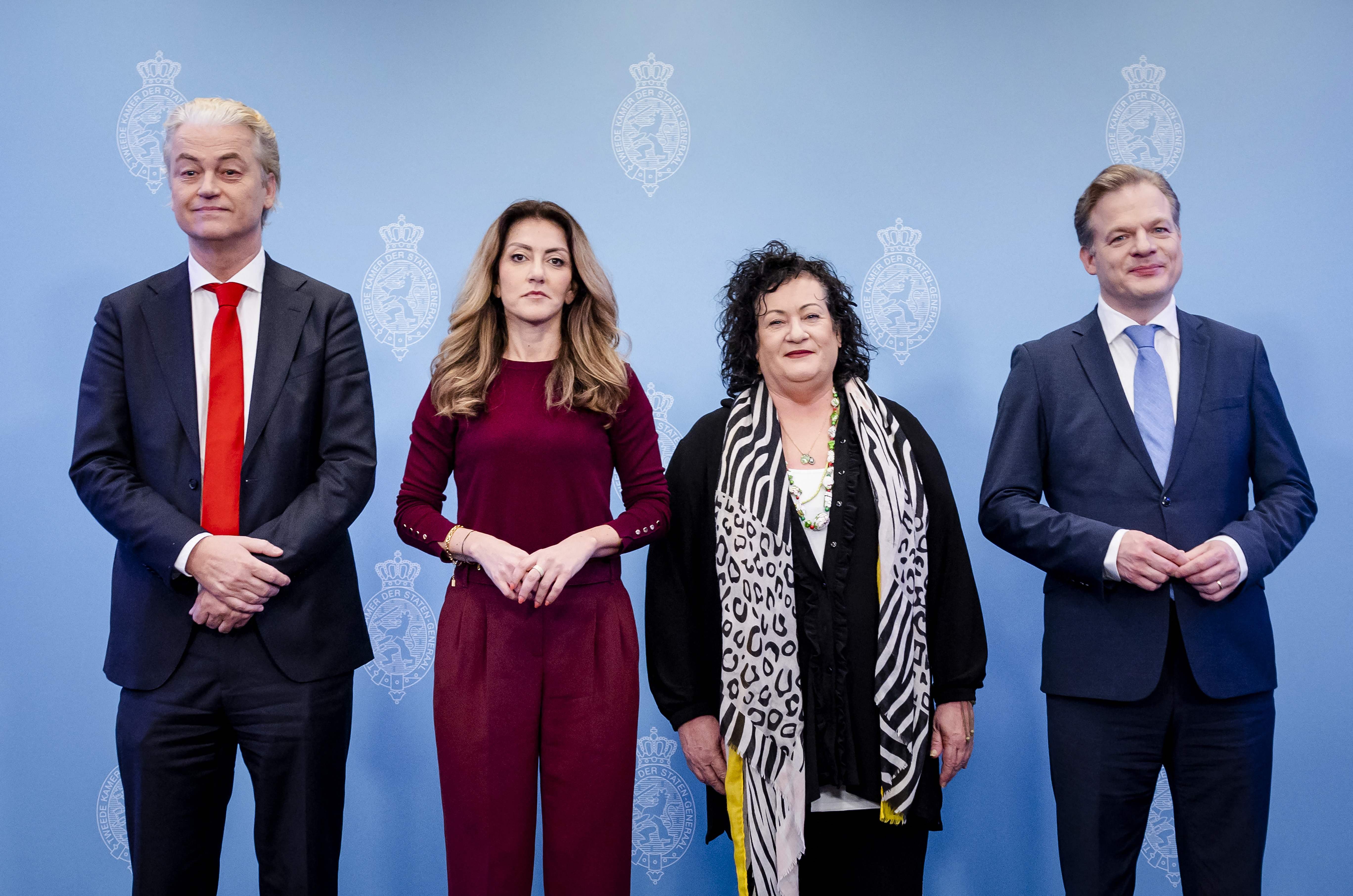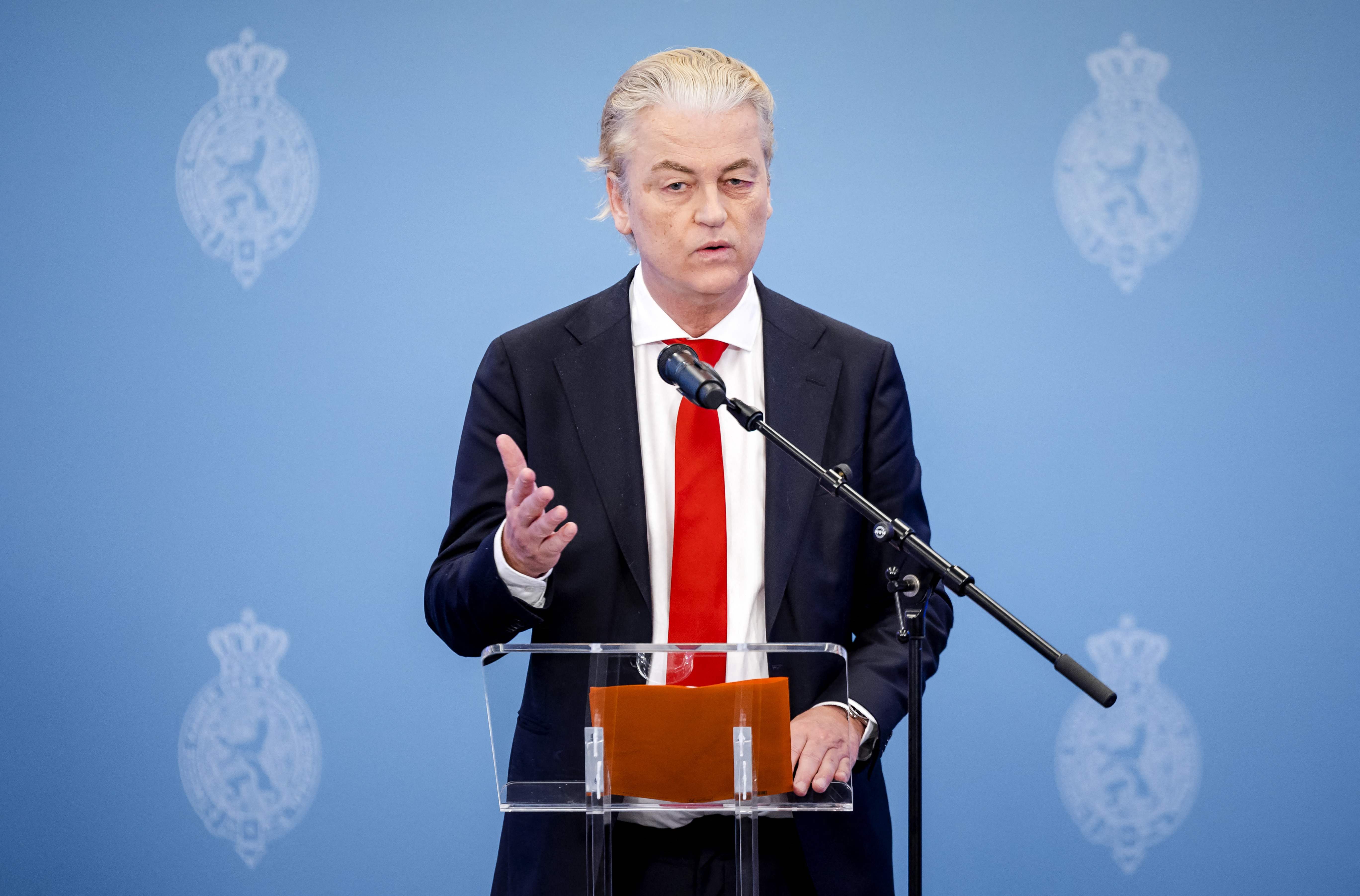
THE HAGUE - Though the Dutch parliamentary election winners agreed on a coalition plan this week, hurdles remain in the way leading to the most right-wing government ever in Dutch history.
During the parliamentary elections on Nov 22 last year, Geert Wilders' far-right populist Party for Freedom (PVV), founded in 2006, got 37 of the 150 seats in the House of Representatives and became the biggest party in the Netherlands for the first time.
Following PVV, the GreenLeft-Labor alliance GroenLinks-PvdA finished second with 25 seats, the rightist People's Party for Freedom and Democracy (VVD) was third with 24 seats and the new centrist party New Social Contract (NSC) ranked fourth with 20 seats.
In recent years before the election, most Dutch political parties had shied away from governing with Wilders due to his anti-Islam stance. However, as the biggest party in the country, now PVV could no longer be ignored.
The agreement bearing the slogan "Hope, courage and pride" has integrated each party's claim, highlighting migration for PVV, security for VVD, livelihood and social security for NSC and agriculture for BBB
After almost six months of difficult negotiations, a deal on a new center-right-wing Dutch government was struck between the PVV, the NSC, the VVD and the farmers movement BoerBurgerBeweging (BBB). It meant that the PVV's anti-migration, anti-Islam and anti-Europe stance will be part of a Dutch government for the first time in history.
READ MORE: Deal on forming govt reached in Netherlands six months after elections
"They persecuted and denounced me for years. Others have wanted to kill me for 20 years. But I never stopped but continued with passion and conviction. And now we have become the largest party in the government. With a lot of influence," Wilders said on X on Thursday when the coalition plan was agreed on.
The agreement bearing the slogan "Hope, courage and pride" has integrated each party's claim, highlighting migration for PVV, security for VVD, livelihood and social security for NSC and agriculture for BBB.
"We will have the strictest asylum policy ever," Wilders said, expecting to install a temporary Asylum Crisis Act. The details of the new policy are yet unknown.

NSC leader Pieter Omtzigt emphasized that he wants to work with the cabinet to improve social security. "That's not just your income, but that also means there are enough homes," he said. BBB leader Caroline van der Plas said that despite the differences she was "very happy that the four parties made it to a deal".
READ MORE: New Dutch government will aim to 'opt out' of EU asylum rules
Regarding foreign policy, the upcoming Dutch government is expected to follow the footsteps of its predecessor by continuing its support for Ukraine against Russia.
For the open position of the new prime minister, the successor of Mark Rutte, earlier negotiations between the parties have excluded Wilders
The four parties have assigned Richard van Zwol, the coordinator for the four-party negotiations, to nominate the ministers and state secretaries for the new cabinet. As Van Zwol expected the process to take weeks, the official inauguration of the new government will not come until late June this year.
For the open position of the new prime minister, the successor of Mark Rutte, earlier negotiations between the parties have excluded Wilders. Like the other three party leaders, the PVV leader remains seated in the House of Representatives.
Dutch media reported that former Labor (PvdA) politician Ronald Plasterk, who led the first round of the government coalition talks, is Wilders' favorite candidate for prime minister. However, some media reported alleged friction between Plasterk and NSC leader Omtzigt.
ALSO READ: Dutch far-right leader to forgo PM job despite winning elections
VVD leader Dilan Yesilgoz said that voters have expressed a preference for a center-right direction and that the VVD takes responsibility. "We want a stable and safe Netherlands," she said.
However, frictions within the four-party coalition are not few. During the six-month negotiation leading to the Thursday agreement, their talks were several times on the brink of collapse.


